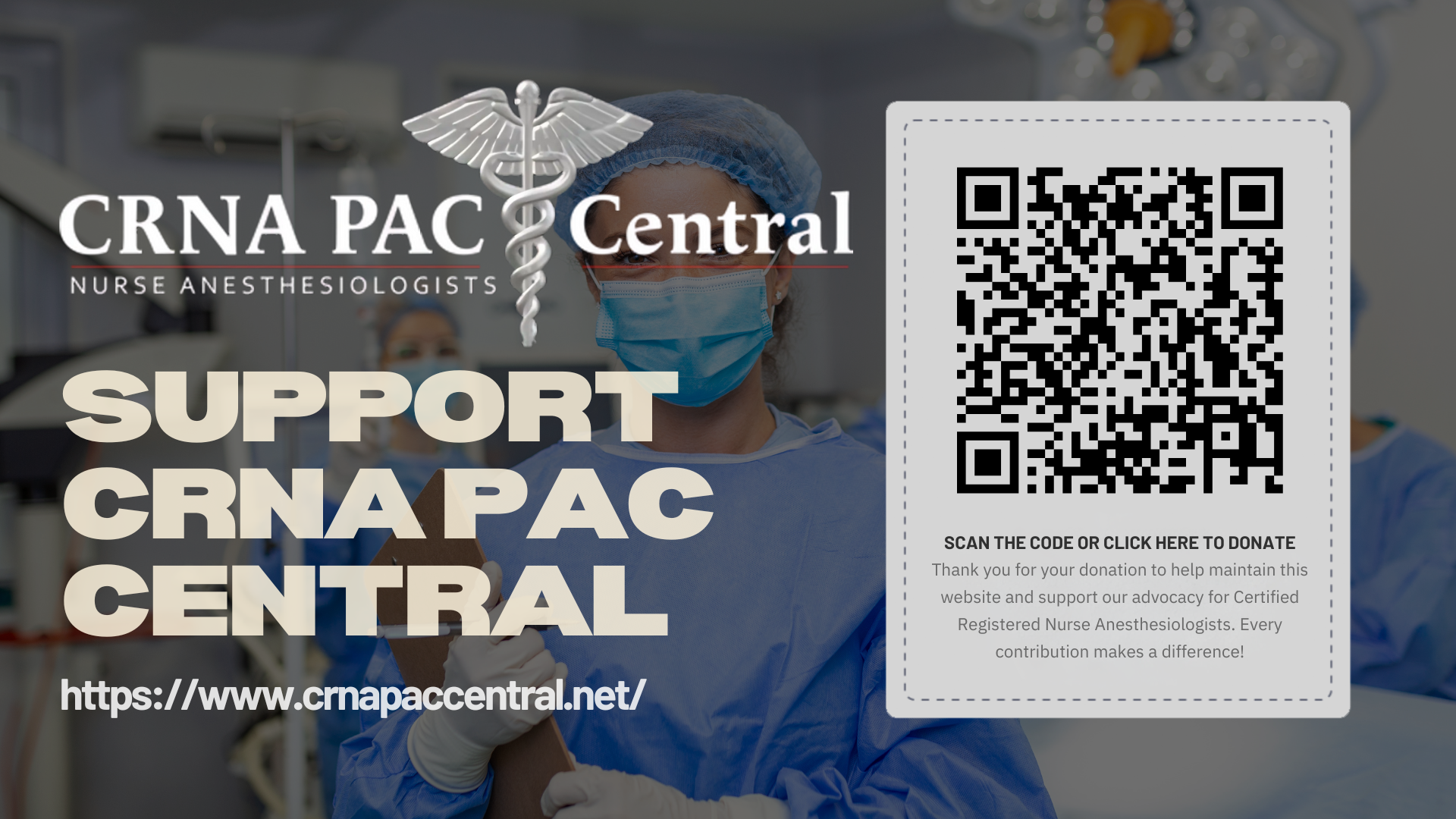CRNA MYTHBUSTERS
Setting the Record Straight
The profession of nurse anesthesiology, a 150+ year practice, has been subject to many practice myths and untruths. The American Society of Anesthesiologists continues to purport information factually incorrect in an effort to support an inefficient anesthesia care team (ACT) model that primarily embraces physician anesthesiologists collecting 200% of the anesthesia fee. Regardless, the fact remains, CRNAs personally deliver greater than 80% of the hands-on anesthetics in the US - physician anesthesiologists do not.
Myth: Anesthesiology is the practice of medicine. Nurse anesthesiologists or CRNAs are nurses and must practice under delegated medicine and, therefore, must be physician supervised. NOT TRUE
FACT: The practice of anesthesiology is neither the exclusive province of medicine nor nursing. When nurse anesthesiologists practice anesthesia it is the practice of nursing, NOT delegated medicine. Medicine and nursing can, and often do, share overlapping functions. Removing a state's supervision requirement would not permit or encourage CRNAs to practice medicine. The practice of anesthesiology is a recognized specialty in both nursing and medicine. A nurse anesthesiologist is an advanced practice anesthesiology specialist while a physician anesthesiologist is a physician specialist in this field of anesthesiology. Related articles are available on the legal precedent page
Myth: Some states require physicians to supervise CRNAs in order to ensure quality of care. NOT TRUE
FACT: 43 states do not require CRNAs to be supervised. And, there is no evidence that quality of care is any lower in states that don't require supervision. To date, studies demonstrate that CRNAs provide high-quality anesthesia care, regardless of whether they are supervised or practicing independently. Requiring that physicians "supervise" CRNAs does not improve patient care. More importantly, the word "supervision" does not accurately reflect the relationship between a CRNA and a surgeon. Surgeons have no affirmative obligation to control the substantive course of the anesthetic process or intervene upon the expertise of a CRNA. To the contrary, and through a long established legal precedent, a surgeon may rely upon the nurse anesthetist as the anesthesia expert.
Nurse anesthesiologists use independent judgment in determining an appropriate peri-operative anesthetic plan, the kind of anesthetic to be administered, as well as types of medications and dosages to be utilized. Does this mean that CRNAs do not closely communicate with the surgeons and other healthcare providers with whom they work? Of course not. A nurse anesthesiologist does not provide anesthetics to surgical patients unless there is a clear indiction to do so. It is obvious, therefore, that the very nature of nurse anesthesiology practice requires a CRNA to actively communicate with other health care providers contributing his or her respective expertise to the overall care of the patient.
Myth: Medicare regulations governing hospitals and ambulatory surgical centers that participate in the Medicare (CoP) program require that CRNAs within those facilities be supervised by a physician - physicians with no training in anesthesiology. So why remove a state's supervision requirement when facilities will still have to comply with the Medicare supervision requirement anyway to participate in the Medicare program?
FACT: The Medicare hospital and ambulatory surgery center regulations are reimbursement criteria only and are not standards for practice or quality of care. Further, federal regulations specifically provide states the ability to
opt out of Medicare Part B from the federal supervision requirement in order for facilities to be reimbursed for the services being provided by a CRNA. Simply put, "Opt-Out" only allows facilities to be reimbursed for the services of a CRNA who is NOT being supervised by a physician - it has no effect on the dynamic relationship and collaboration that occurs as an integral part of the surgical team.
Myth: CRNAs are trained only to perform anesthesia techniques and are therefore only technicians. Unlike physicians, CRNAs are neither licensed nor qualified to make the medical judgments necessary for adequate patient care. Nurse anesthesiologists are not trained to make a medical assessment of the patient and, therefore, should not be permitted to practice independently. NOT TRUE
FACT: CRNAs do not purport to be physicians. CRNAs have been an established profession for more than 150 years - much longer than physician anesthesiologists. The evidence supports - CRNAs are highly qualified anesthesia providers who provide the same quality care as their physician counterpart.
Nurse anesthesiology education programs are a minimum of three years long, and include both classroom and clinical residency experience, culminating in being awarded with an entry level practice doctoral degree specializing in the practice of anesthesiology. The curriculum emphasizes advanced anatomy, physiology, biochemistry, chemistry, pathophysiology, statistics, and pharmacology as they relate to anesthesia practice. The clinical residency provides thousands of hours of clinical hands-on experience providing the full scope of anesthetic experiences and a multitude of the various techniques for ALL types of surgery and obstetrics. CRNAs are competent anesthesia providers who are NOT "technicians." They are no more restricted to learning "basic" anesthesia procedures than are physician anesthesiologists. CRNAs are rigorously educated to be, and in fact are, functionally interchangeable with physician anesthesiologists concerning anesthesia care as fully trained independent providers.
Myth: CRNAs are less educated than physicians and therefore should be physician supervised.
FACT: From the commencement of their professional education as a baccalaureate trained registered nurse, a CRNA ultimately spends a minimum of 8-9 years, many times upward of 10-11 years, of the education and training necessary to be awarded a doctorate specializing in the field of anesthesiology - only the top level registered nurses across the country are accepted into these extremely rigorous programs. A successful graduate is subsequently to sit for the national board exam in order to be awarded the prestigious CRNA credential.
However, the more pertinent inquiry is whether the education and training that CRNAs receive prepares them to provide high quality anesthesia and intensive medical care. The evidence overwhelmingly supports that CRNAs provide exceptional anesthesia care, regardless of whether they are physician supervised or not. No studies indicate that state-mandated supervision requirements improve patient care or the quality of practice. The fact that CRNAs are not educated as physicians is irrelevant. Any suggestion that CRNA education is inadequate is both demeaning and untrue. Not only are CRNAs superb clinicians, they can be educated and integrated into the health care system more quickly and at lower cost than physician anesthesiologists.
The most substantial difference between CRNAs and physician anesthesiologists is that prior to anesthesia education, anesthesiologists first receive medical education while CRNAs first receive nursing education accompanied with significant experience as intensive care or emergency trained registered nurses (2.9 years of experience on average). The anesthesia part of the education is very similar for both providers. In many academic settings, nurse anesthesiologist and physician anesthesiologist residents utilize the same textbooks, learn the same anesthetic principles, learn and incorporate the same anesthetic techniques, on the same patient population, adhering to the SAME STANDARD OF CARE, and more often than not, in surgical settings right next door to one another - essentially, there is NO DIFFERENCE!
The nature of anesthesia requires the constant vigilance of the anesthesia provider - regardless of credential. Studies of anesthesia-related incidents show that most are avoidable. The most common anesthesia accidents result from human error, such as breathing system disconnects, inadvertent changes in gas flows, and medication errors. These accidents, which are statistically very rare, result from lack of vigilance, not lack of education. Anesthesia practice continues to become safer because of improvements in medications and technological advances that have resulted in better monitoring techniques.
Myth: Permitting CRNAs to practice without physician supervision would enable them to practice medicine without a license.
FACT: Removing a supervision requirement would not permit CRNAs to practice medicine. CRNAs would continue to provide care under their nursing license within their scope of practice and expertise as advanced practice nurses. CRNAs would continue to perform the functions they have been safely and competently performing for more than 150 years.
There is NO EVIDENCE or LEGAL BASIS supporting the argument that removing a supervision requirement permits CRNAs to practice medicine. Proponents of this argument imply that unless state law contains an explicit physician supervision requirement, nurse anesthesiologists will be practicing medicine. This is clearly ludicrous and unsupportable. In the numerous states in which they are not required by state law to be supervised, nurse anesthesiologists have never been found to be practicing medicine.
Myth: CRNAs are educated to practice under the medical direction of anesthesiologists and, therefore, must be physician supervised.
FACT: CRNAs are NOT required to be medically directed in any state in the US - "Medical Direction" is strictly a billing model and has never been defined as a Standard of Care. CRNAs are educated to provide quality anesthesia care, regardless of whether a physician anesthesiologist is present. All nurse anesthesiology educational programs are accredited by the Council on Accreditation of Nurse Anesthesia Educational Programs. To obtain accreditation, programs are required to demonstrate that the “clinical curriculum provides students [residents] with opportunities for experiences in the perioperative process that are unrestricted, and promote their development as competent safe nurse anesthetists.” Physician anesthesiologist arguments concerning supervision and CRNA practice tend to be similar from state to state. In part, this is because state anesthesiologist societies tend to adapt their materials from American Society of Anesthesiologist (ASA) documents. ASA’s position has very little to do with CRNA education and training and is primarily designed to protect the monetary turf of physicians practicing anesthesiology. Nurse anesthesia educational programs graduate nurse anesthesiologists prepared for autonomous practice.
This document is a modified version of the American Association of Nurse Anesthesiology's original "Myth vs. Reality" publication; inspired by the Virginia Association of Nurse Anesthetists "Mythbusters" page.

